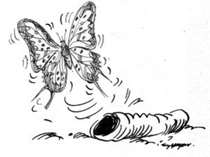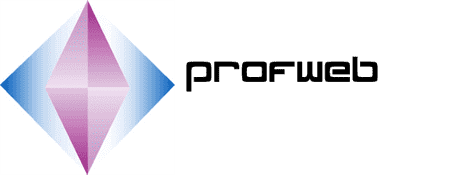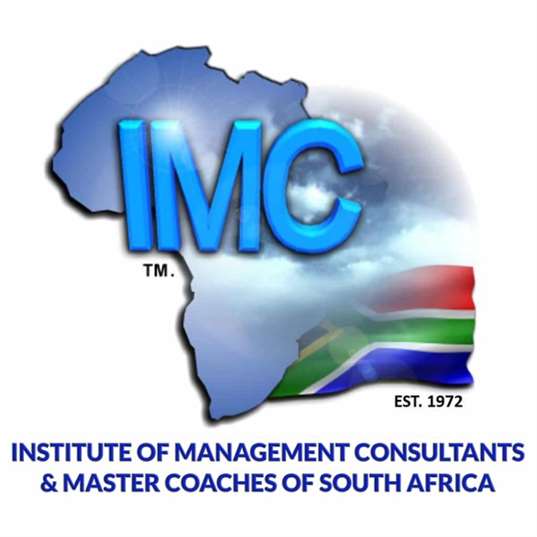When we are no longer able to change a situation, we are challenged to change ourselves – Viktor Frankl
Life can throw us curved balls
Life is “… a lot like walking into the ocean, and a big wave comes and knocks you over. And you find yourself lying on the bottom with sand in your nose and in your mouth. And you are lying there, and you have a choice. You can either lie there, or you can stand up and start to keep walking out to sea”. “So the waves keep coming … and you keep cultivating your courage and bravery and sense of humour to relate to this situation of the waves, and you keep getting up and going forward”.
Chödrön, P. 2016 Tweet
These waves (and the coronavirus and its implications are a big one) may shatter our reality, our assumptions, harshly expose that what we thought was known is unknown. Our past credentials, experience, competencies, client-base, pending assignments suddenly seem to be rendered null and void, for the foreseeable future anyway. We enter the newly arrived world of “not yet”, confronting and then facing for ourselves (perhaps in different ways):
“What if … ?
If only …
If this goes on …” (Gaiman, N. 2016)
We continue to be bombarded with advice on thinking positive, staying calm, persevering, weathering the storm, seeing silver linings, being proactive – the don’t just cope, but flourish brigade. Quite frankly, I sometimes find these message to be unrealistic and sometimes downright boring! I’ll try and avoid too much of that in this series. Pura vida does not mean that we never have gloomy times, despair, loss of confidence, suffering, even defeat
A few of us have taken carry-over assignments into lock-down, perhaps consulting online to clients about managing a remote workforce. Many are chasing after work and busy-ness – furiously marketing and scrabbling to sell their wares and services, promoting themselves and the same work on different platforms with new wrapping paper, competing for success with others who have exactly the same idea. Others are in ‘left-brain” mode, perhaps over-thinking, planning and strategizing. Yet others have stepped back to pause and perhaps take the opportunity to enjoy family time and a different pace of life. Some have given up in despair, not being able to see any light at the end of the tunnel.
None of us knows the unknown. We share uncertainty, and fears about future work and income, investment performance, the health of our loved ones and ourselves, not seeing other family and friends soon or again (some are in far off places), our fitness for a dramatically different, new world of work that may emerge ….
How should we respond?
So, my fellow management consultants and coaches – how do we begin to move from fear to cheer? Each will respond in our own way. I would however exhort you to think on these things:
Be aware that we have New brain troubles
As we have evolved as humans over the centuries, we have developed what English psychologist Paul Gilbert refers to as “new brain-mind troubles”. We have the capacity to look ahead, anticipate, become anxious, worry. We can look back, regret, reflect on and relive mistakes. Forgetting the present moment (that we only live it once before it passes) – whether we are in lock-down or not. (Gilbert, P. 2010)
This is not something that comes without discipline. We are designed to be fearful and to worry. Gilbert’s research and passion has led him to believe that the antidotes to these “new brain-mind troubles” are mindfulness and prosocial compassion (This stems from an inner knowing that love drives out fear)


Start with self-compassion and Kristin Neff’s helpful advice:
- Be non-judgemental of self, kind to yourself
- Be aware that everyone is in the same boat/ this is the human condition. You are not alone
- Simply accept painful thoughts mindfully without over-identifying with them
(See: www.self-compassion.org)
Self-compassion readies us to extend compassion to others.
Think non-dualistically
We humans dislike paradox, ambiguity, and contradiction. Grey is far less acceptable than black or white. In our lives and in our workplaces we seek clarity, definite choices. We employ dual thinking. And that’s often valid. But many times life simply doesn’t work that way. Things are more complicated, complex, and sometimes even chaotic. A readiness to embrace ambiguity and expand, is an incredibly valuable trait and a sure sign of maturity. A few examples of ‘both/and’ instead of ‘either/or’:
Always worth revisiting is the ancient Chinese character for crisis. It is paradox, meaning dangerous + opportunity.

Futurist John Naisbitt advocates the balancing principle High-Tech AND High-Touch. The rise of advanced technology, as we are now experiencing, always demands more high-touch.
Compassion AND Power (hard/soft). Neuroscientist Dacher Keltner’s extensive research exposes our limiting beliefs about power. He shows clearly how compassion and selflessness enable influence (both direct and indirect), and invoke followership. Compassion produces positive power. (Keltner, D. 2016). As long as we don’t get our motives confused, something worth trying is: if you’re feeling down go and lift someone up. If you are really concerned about money, give some of what you have to someone else. And reflect on the result within yourself.
We are taught as leaders and managers to show that we are reliable, stable, on top of things, tough. But being vulnerable, becoming aware that we are not meant to be macho, strong, unfazed – actually has the potential to boost our authenticity, acceptance and followership. (Bravery stems not from the absence of fear, but happens in spite of being afraid)
We must all think People AND Planet AND Profit. More and more businesses are seeing the interconnectivity between people, planet and profit. They’ve grasped the imperative to act responsibly to ensure the sustainability of society, communities, the environment – in their own interests.
Think not ‘Me’ but ‘We’, not ‘Why me? But ‘Why not me?
Work on developing your compassion
Being compassionate rather than selfish is what brings us closer to being fully human, especially during times of challenge. It is a big part of our wake up – grow up – clean up and show up development, stages and states as our consciousness is raised. The subject of another article. Suffice to say that “The longest road you will ever have to walk in your life is the sacred journey from your head to your heart”. (Chief Phil Lane Jnr, hereditary North American First Nations leader (Dakota/Sioux and Chickasaw)
Perhaps, whether we are working live or remotely, coaching and consulting is in essence about bringing compassionate healing, meaning, purpose, and well-being to organisations and their members?
TO READ THE REST OF THIS NEWSLETTER, GO TO ………………………………….
Look in the mirror
Angelo Kehayas published an article in thoughtleader.info entitled Looking in the Mirror – do we practice what we preach. Right now is an ideal time to subscribe to and access this resource dedicated to management consultant and coaches, and their clients, in Africa.
Go to: thoughtleader.info
Perhaps your contemplation will yield a more favourable picture than that painted by Ralph Windle in his tongue-in-cheek poem, The Management Consultant.
Ralph died last year, was a one-time CEO of Nabisco, UK and himself a management consultant. He authored a number of books, sharing wonderful insights and perspectives. My favourite is The Poetry of Business Life, which includes The Management Consultant. It begins:
“Of all the businesses, by far
Consultancy’s the most bizarre.
For, to the penetrating eye,
There’s no apparent reason why,
With no more assets than a pen,
This group of reasonable men
Can sell to clients more than twice
The same ridiculous advice,
Or find, in such a rich profusion,
Problems to fit their own solution…” (Windle, R. 1994)
Looking more deeply into the mirror
Leonardo da Vinci counselled: “Every now and then go away, have a little relaxation, for when you come back to your work your judgment will be surer; since to remain constantly at work will cause you to lose power of judgment……… go some distance away because the work appears smaller and more of it can be taken in at a glance, and a lack of harmony or proportion, more readily seen”.
Our forced lockdown affords us this opportunity to gain fresh perspective.
So, to go deeper into looking into the mirror,
“An exhausted rabbi, travelling late at night, arrives at an Inn. The innkeeper apologizes, “I’m sorry there is no room”. “Please, I am desperately tired and must leave early in the morning. Do you not have somewhere where I can lay my weary head?” “Well,” says the innkeeper, “There is a clown sleeping in a double bed. You can share the bed with him”. Early in the morning, the innkeeper wakes the rabbi. He dresses in the dark, pays his way, thanks the innkeeper and steps out into the street. As dawn comes, he notices people giving him peculiar looks. Then he catches his reflection in a shop window. He is dressed as a clown. The rabbi exclaims, “That stupid innkeeper. He has woken the wrong man”.

In this story the rabbi encounters another part of himself in the night, in his dream life, which he refuses to recognize. His response? To blame the innkeeper. Often blame arises in a knee-jerk reaction. The need to pin fault on to somebody else, outside of oneself. (Williams, G and Haarhoff, D. 2016)
During this forced lock-down time, three ‘contemplation-quests’ have arisen for me, that perhaps you share?
Quest 1 – Am I doing the right work in the right way?
The incredibly successful Southwest Airlines recognised more than a quarter of a century ago that “an emptiness, a lack of spiritual and psychic gratification stems from meaningless and exhausting work”. (Freiberg & Freiberg, 1996) and in a wonderful piece titled “Work as Opus”, Jungian therapist Thomas Moore points to work as probably the most unconscious of all of our daily activities, yet potentially the most important soul component of our spiritual lives (which is not about religiosity but about the fundamental essence of what it means to be fully human, with all of our contradictions, paradoxes, fallibility; how we relate to others, and how we access meaning).
Moore shows us that work can be something “that both awakens and satisfies the very root of our being”. (Moore, T. 1994)
It is a soul aspect that lies outside of ourselves, and mirrors back to us who we are, and what we can be. This is an opportunity to reflect on the work that we do, and how we do it. And to decide whether or not it fits our sense of having a higher purpose and accompanying personal values.
As Kahlil Gibran cautions, “Work is love made visible. And if you can’t work with love, but only with distaste, it is better that you should leave your work and sit at the gate of the temple and take alms of the people who work with joy”. (Gibran, K. 1965)
Quest 2 – Do I properly balance my home, work and social lives?
Suddenly working from home, and the collapse of compartmentalized aspects of our life, throws up a clear challenge. One that we are forced to confront if this new work-mode continues.
if we have not been achieving harmony, balance, a seamlessness between different compartments of our life – not only how we apportion our time, but also how we carry across our values and behaviours, and vary our different roles accordingly – then how can we discontinue living an out-of-balance life? How can we integrate these components of our lives to enhance our lives and the lives of all around us?
David Whyte points out that we have ‘marriage’ commitments to another, to work and also to self – and goes on, “in these pages I am looking for a marriage of marriages”.
He says that our “current understanding of work-life balance is too simplistic. People find it hard to balance work with family, family with self, because it might not be a question of balance. Some other dynamic is in play, something to do with a very human attempt at happiness that does not quantify different parts of life and then set them against one another. We are collectively exhausted because of our inability to hold competing parts of ourselves together in a more integrated way”. (Whyte, D. 2010)
Quest 3 – How do I make sense of things, find lasting meaning and satisfaction?
This window into Leo Tolstoy’s life illuminates for me those fundamental existential questions we all face, whether or not we choose to answer them. Searching for answers was for him a lifelong quest.
“In his turn, Tolstoy was of course aware that he was following in a long line of authors. In asking “Who, what am I?” he self-consciously echoed Socrates, Marcus Aurelius, Descartes, Pascal, Kant, Rousseau. But he believed that ordinary peasants asked it as well. Tolstoy particularly loved a story about his old nanny. She would lie alone listening to the clock ticking on the wall; the clock asked: “Who are you – what are you?” (Kto ty chto? Kto ty chto ty?). Tolstoy echoed: “This is the entire essence of life: Who are you? What are you?””.
(Paperno, I. 2014)
Fundamental existential questions guide the flourishing leadership process offered by CultureScan. It is based on development from the inside out, and not the usual treadmill chase after new models, styles, skills, values and so on that we find in the ever-growing catalogue of new leadership development products and programmes.
(See http://www.haloandnoose.com/content.asp?PageID=49
and https://culturescan.biz/the-magic-of-perspective-the-culturescan-process/)

Invariably as participants grapple with these questions, overriding questions surface with regard to spirituality.

At the same time as we are experiencing foreboding, polarisation, competition and combativeness in our societies, we also seem to be experiencing a growth in ‘spirituality’, a move to more collaboration, compassion and fuller human-ness. These two trends may be reinforced by the coronavirus crisis.
One spiritual growth framework, often attributed to Ken Wilbur, is that of Wake up. Grow up. Clean up. Show up. In brief:
Waking up is a growing awareness, a raised state of consciousness that there is something bigger than ourselves, an interconnectedness between all people and things, an overriding power of love that continues our evolution.
Growing up is our individual development and maturation (emotionally, socially, intellectually, in bodily and sensing wisdom). Integration as a ‘whole person’. Adopting values that include thinking non-dualistically (with a bigger mind: metanoia, and eunoia, or beautiful thinking), and an other-orientation. Values tend to shift away from the extrinsic to the intrinsic.
Cleaning up happens as we grow up and transform, and requires some self-directed effort at engaging with and integrating our shadow side, and working hard at converting our stated higher values into habits that bring them to life. One habit that is gaining traction is meditation – a form of which may be termed self-directed neuroplasticity. Another is being ready, willing and able to serve others with care and compassion (people, other inhabitants of the planet and nature and the planet itself – which naturally entails letting go of and emptying of self: kenosis)
Showing up is an outcome of the previous states and stages, a practical and meaningful engagement with life that reflects our waking, growing and cleaning up – that promotes and furthers the transcending of “me” into “we”, results in giving and serving, brings about unification and becomes love in action. Alcoholics Anonymous’ 12th Step is about showing up and giving.
I don’t think that we ever arrive, but that doesn’t mean we shouldn’t embark on the journey.
“Before enlightenment, chop wood, carry water. After enlightenment, chop wood, carry water” – Zen proverb
References
Chödrön, Pema (2016) How to Move Forward Once You’ve Hit Bottom Lion’s Roar Newsletter 7th October, 2016 http://www.lionsroar.com/how-to-move-forward-once-youve-hit-bottom/
Freiberg, Kevin & Freiberg, Jackie (1996) Nuts!: Southwest Airlines’ crazy recipe for business and personal success. Orion Business Books. London
Gaiman, Neil (2016) The View From the Cheap Seats: selected Nonfiction Headline
Gibran, Kahlil (1965) The Prophet Alfred A. Knopf
Gilbert, Paul (2010) The Compassionate Mind: a new approach to life’s challenges Constable, London
Keltner, Dacher Dr (2016) The Power Paradox: how we gain and lose influence Penguin Press
Moore, Thomas (1994) Care of the Soul: How to Add Depth and Meaning to Your Everyday Life Piatkus, London
Paperno, Irina (2014) “Who, What am I?”: Tolstoy Struggles to Narrate the Self Cornell University Press (1st Edition)
Whyte, David (2010) The Three Marriages: Reimagining Work, Self and Relationship Riverhead Books
Williams, Graham and Haarhoff, Dorian (2016) The Halo and the Noose: the power of storytelling and story listening in business life 2nd edition. Heart Space Publications, Australia
Windle, Ralph (1994) The Poetry of Business Life: an anthology Berrett-Koehler Publications, Inc.
News
Articles on coping with the crisis. Bashir Khan is weighing in with learning contributions to the LinkedIn Group: South African Management Consultants Network – https://www.linkedin.com/groups/2272610/ At the time of posting this newsletter, the following were available:
- Lesson Day 1 of 21: Despair. Deals. Dry Powder on mind-set, endurance and leadership lessons from Sir Earnest Shackleton
- Lesson Day 4 of 21: Unprecedented. Houston. Job about opportunities in times of crisis, lessons from the “Houston, we have a problem” event
Thought leader web site resource. To get a taste of the IMCSA thought leader web site, check out their free articles. You may wish to subscribe. https://thoughtleader.info/category/free-articles/
Lock-down under way with teething troubles. Here in South Africa a number of people, because they’re not sufficiently informed, don’t understand or don’t believe just how contagious and threatening the coronavirus is, and are not complying with lock-down regulations. The Spanish coronavirus spread is much more advanced than ours, and reached a point where patients over the age of 65 in Madrid, because of the shortage of ventilators, are being taken off their ventilators, and left to die alone. We may be in the calm before the storm phase … And shouldn’t discount a lockdown extension, with all its implications
Coping with Remote Working. Knowledge Resources have published a work of contributions from a number of experts in their fields, for leaders and consultants confronting the implications of the coronavirus: Managing Organisations During the COVID-19 Vortex. http://www.kr.co.za






